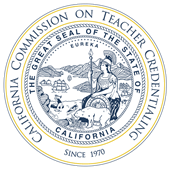
June 16, 2020
Open Letter to the Education Community
"I wish I could say that racism and prejudice were only distant memories. We must dissent from the indifference. We must dissent from the apathy. We must dissent from the fear, the hatred and the mistrust...We must dissent because America can do better, because American has no choice but to do better." - Thurgood Marshall
As we witness and share int eh collective mourning for the lost Black lives and the demands for justice for victims like George Floyd, Breonna Taylor and Ahmaud Arbery, we are sad and outraged and ashamed. But we also see growing societal awareness of the devastating impacts of institutional racism on Black Americans, and the unforgiveable inequities that people of color face in our country. This moment demands action from every person and every sector of society. It is especially salient to how we educate young people.
This raises many questions for us. What role can educators play in dismantling systemic, institutional racism? What role do they play in perpetuating these systems? What does anti-racist education look like and how do we get there? How can the Commission on Teacher Credentialing, through its policies, standards and engagement within the field of education, be a catalyst for change?
We must first embrace the notion that we all have much to learn and unlearn. This will require our own commitment to participate, read, process, watch, listen, and tolerate some level of discomfort as we develop our understanding of racism in American culture. It will also require direct engagement with students, teachers, administrators, counselors, parents and white
communities and communities of color.
Second, we must examine the current policies, standards and practices we employ that enable and constrain the recruitment, preparation and credentialing of a diverse and highly effective education workforce. We need to ensure this workforce is prepared to engage in practice that is anti-racist, asset-based, culturally responsive, and addresses implicit and explicit bias. We know our policies must be grounded in a clear and shared vision of student success and well-being in school. Perhaps this is where we start.
Third, we need to work collaboratively with the educator preparation community to develop a deep and collective understanding of how to prepare highly effective members of the education workforce in these critical aspects of equitable practice. How we go about enacting our equity work will be the subject of future Commission conversations and a strategic planning process that began prior to the interruption of COVID-19.
In closing, we borrow these sage words from the staff at Teaching Tolerance, who have inspired us with their own process:
There will be a time for takeaways. In the coming weeks and months, our questions will shift toward analysis. We’ll concretely and consistently recognize the depth of the history that informs this moment and the diverse range of lived experiences that share the streets. We’ll turn to vital questions about educational spaces and their relationship to systemic, racist violence. We’ll continue to look at our institutions and consider how they might better serve all people. We’ll continue to think critically about the role educators can play in imagining a liberatory future for all.
Sincerely,


Tine Sloan, Ph.D.
Chair, Commission on Teacher Credentialing
Associate Teaching Professor, Department of
Education, UC Santa Barbara
Mary Vixie Sandy, Ed.D.
Executive Director,
Commission on Teacher Credentialing
.png?sfvrsn=c28b72b1_10)
.png?sfvrsn=cd8b72b1_0)